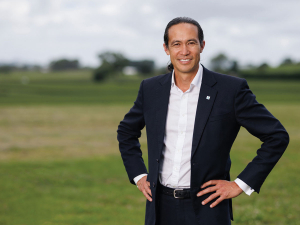He says El Nino weather, if it eventuates as foreshadowed by meteorologists, could result in a severe drought in some regions and this would cause milk production to dive.
Unlike previous droughts, farmers won’t spend on supplementary feed.
“In the previous droughts, farmers bought in supplementary feed to fight their way through it,” Hoggard told Rural News. “This time, I don’t think they will attempt to fight their way through; they will dry cows off.”
Fonterra is maintaining its milk volume forecast for the 2015-16 season at 1589 million kgMS -- 2-3% lower than the amount collected last season.
However, the co-op says there is evidence that farmers are pulling back on production, which could lead to a further downward revision of forecast volumes as the season advances.
Hoggard says while everyone tries to maximise milk production, he has heard stories of farmers culling many cows during winter.
“There have been stories of farmers culling cows and rearing beef… but I think the weather will have the biggest impact. Who knows what will happen with the El Nino?”
El Nino is a major global climate fluctuation that occurs during ocean warming. For New Zealand it generally leads to stronger or more frequent winds from the west in summer, leading to drought in east coast areas and more rain in the west.
In winter, the winds tend more southerly, bringing colder conditions. In spring and autumn southwesterly winds are more common.
Niwa says indications are that El Nino is certain to continue over the next three months and are “extremely likely” to persist over summer.
Fonterra group director cooperative affairs Miles Hurrell agrees the weather will play a big role.
“It is still early in the season, and any forecast at this point depends on weather conditions, which have so far been poor for production,” he says.
“Given these variable factors, we have decided to maintain our current forecast milk volume at this early stage of the season.”
Fonterra is required under the Dairy Industry Restructuring Act to update its current season forecast milk volumes by early September.
Hurrell said farmers are responding to the lower forecast farmgate milk price by returning to more traditional farming practices.
“They are reducing the use of feed supplements and lowering stocking rates per hectare as they concentrate on using pasture.
“Market data from several independent sources show that cows are being culled at higher rates than last season and many of our farmers say they expect significant year-on-year volume reductions.
“Currently our daily milk collection average is lower than in the same period last year,” says Hurrell.










